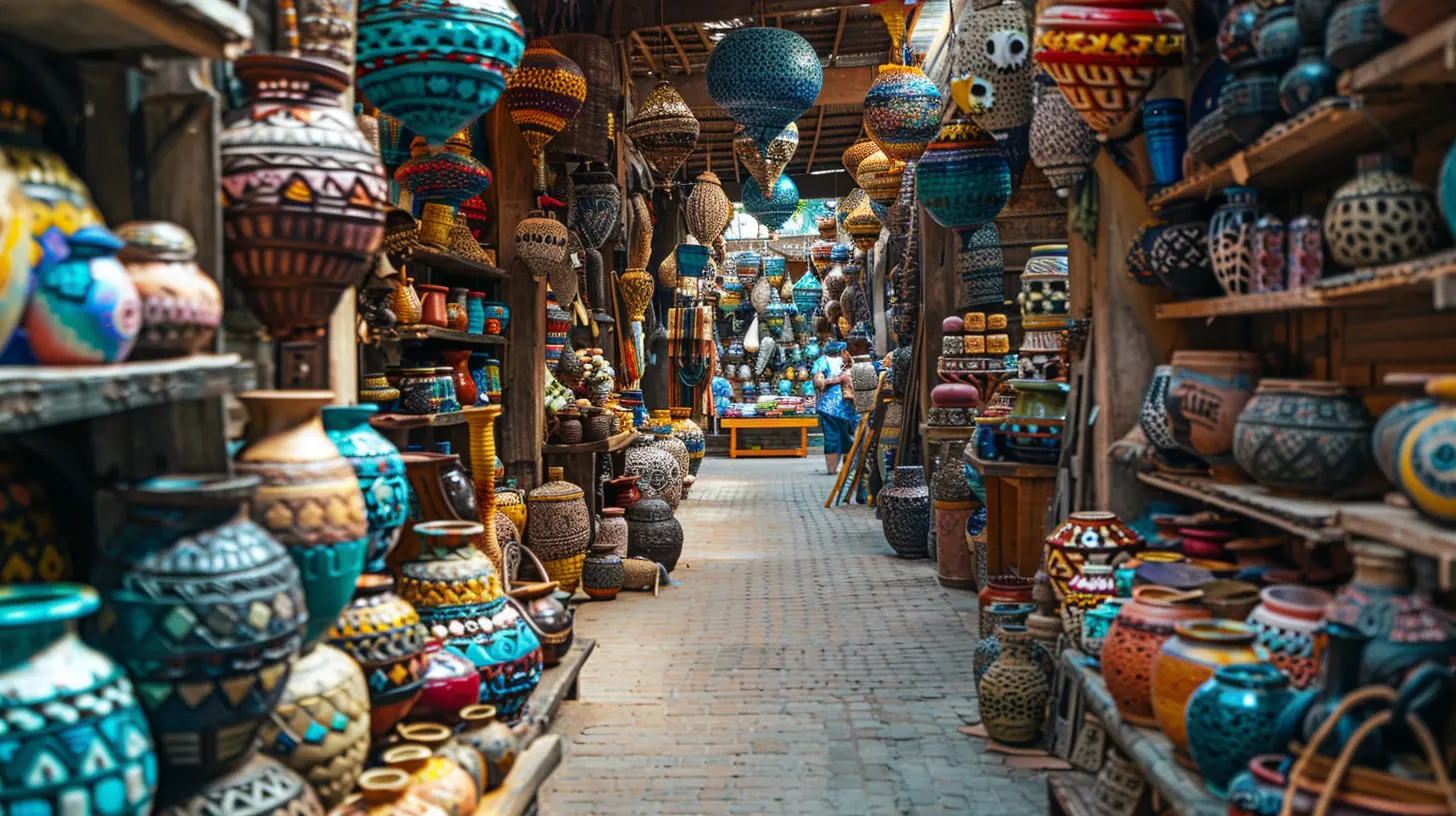Ethical Shopping: Supporting Artisans at Local Markets
28 June 2025
Ever found yourself wandering through a bustling local market, admiring handmade crafts, intricately woven fabrics, or one-of-a-kind jewelry? That moment when you realize someone poured their heart and soul into that piece—it's priceless. But here’s the real question: Are we truly valuing these artisans' work, or are we just haggling for the cheapest deal?
Ethical shopping isn’t just a trend; it’s a movement that empowers artisans, preserves cultures, and ensures fair wages. So, how can you shop at local markets in a way that actually makes a difference? Let’s dive in.

What Is Ethical Shopping?
Ethical shopping is all about making conscious choices—supporting artisans and small businesses rather than mass-produced goods from big corporations. It focuses on sustainability, fair trade, and cultural preservation. When you buy directly from artisans, you're not just purchasing an item; you're investing in a story, a livelihood, and a tradition that might otherwise disappear.
Why Supporting Local Artisans Matters
Sure, it’s easy to walk into a big-box store and grab a mass-produced souvenir. But when you do that, you're missing out on something special. Here’s why shopping from local artisans is a game-changer:1. It Keeps Traditions Alive
Many handmade crafts are tied to centuries-old traditions. Whether it's handwoven textiles in Guatemala, intricate ceramics in Morocco, or detailed wood carvings in Bali, these skills are often passed down through generations. Buying locally ensures these art forms don’t fade into oblivion.2. It Creates Fair Wages for Artisans
Let’s be honest—many artisans aren’t getting rich from their craft. In fact, mass production and middlemen often leave them with just a fraction of what their work is worth. Ethical shopping cuts out the middleman, ensuring artists get a fair price.3. It’s More Sustainable
Fast fashion and mass production wreak havoc on the environment. Artisanal goods, however, are often made using traditional, eco-friendly methods and locally sourced materials. That means less waste, less pollution, and a lower carbon footprint.4. You Get Unique, High-Quality Products
A handmade product carries a level of craftsmanship that factory-made items just can’t replicate. No two pieces are exactly alike, which means you're taking home something truly special—something that tells a story.
How to Shop Ethically at Local Markets
So, how can you ensure that your shopping habits are truly ethical? Here are a few golden rules to follow when browsing local markets:1. Do Your Research
Before hitting a market, take some time to understand the local crafts and traditions. Is the region known for a particular type of weaving, pottery, or metalwork? Knowing what to look for helps you make informed choices, ensuring you’re buying authentic, artisan-made products.2. Ask About the Craft and the Artisan
Instead of just grabbing an item, engage with the seller. Ask questions like:- Who made this?
- What materials were used?
- How long does it take to create something like this?
Most artisans take pride in their work and love sharing their stories. Plus, it ensures that you’re buying something genuinely handcrafted rather than a mass-produced knockoff.
3. Accept the Price (And Don't Haggle Too Hard)
We all love a good deal, but remember: artisans have priced their goods fairly based on the time, skill, and materials put into them. While a little negotiation is common in many countries, lowballing can be disrespectful. If something seems too cheap, chances are the artisan isn’t being paid fairly.4. Look for Fair Trade or Ethical Certification
If available, look for fair trade certifications or signs that indicate ethical production. These guarantee that artisans are receiving fair wages and working under decent conditions.5. Choose Quality Over Quantity
Instead of buying a ton of cheap souvenirs, invest in fewer, higher-quality pieces. A handwoven scarf, a handcrafted ceramic bowl, or a piece of jewelry made by a local artisan holds far more meaning than a mass-produced fridge magnet.6. Avoid Mass-Produced "Tourist" Goods
Some market stalls sell factory-made items disguised as handmade crafts. If a vendor has an endless supply of identical items, that’s a red flag. True artisan work has slight variations—imperfections that add character.7. Spread the Word
If you love a particular artisan’s work, shout it from the rooftops! Share their story on social media, recommend them to fellow travelers, or even buy extra pieces as gifts. Exposure can help artisans gain more customers and grow their businesses.
The Social Impact of Ethical Shopping
When you shop ethically, you’re directly contributing to local economies. Many artisans rely entirely on market sales to support their families. By purchasing their goods, you're helping them afford education for their children, medical care, and better living conditions.Beyond the numbers, ethical shopping fosters cultural exchange. It allows travelers to connect with communities in a meaningful way—one that goes beyond snapping a photo and leaving with a cheap souvenir.
Ethical Shopping Around the World: Where to Find the Best Local Markets
Ready to put this into practice? Here are some of the best artisan-friendly markets where your purchases truly make a difference:- Chiang Mai Night Bazaar, Thailand – A haven for handcrafted silver jewelry, textiles, and pottery.
- Mercado de Artesanías, Mexico City – A colorful marketplace filled with traditional Mexican crafts, from Talavera pottery to embroidered textiles.
- Grand Bazaar, Istanbul – One of the oldest and largest covered markets in the world, where artisans still craft everything from carpets to ceramics by hand.
- San Telmo Market, Buenos Aires – A perfect spot to find handmade leather goods and unique Argentine crafts.
- Ubud Market, Bali – The place to score intricate wood carvings and handmade batik fabrics straight from the artisans.
Final Thoughts
Ethical shopping isn’t just about buying things—it’s about making mindful choices that support people, cultures, and traditions. The next time you’re browsing a local market, think beyond the souvenir. Ask about the artisan, appreciate the craftsmanship, and be willing to pay a fair price.When we shop ethically, we’re not just collecting souvenirs—we're collecting stories, preserving cultures, and making a real impact. So, next time you travel, make your shopping count.
all images in this post were generated using AI tools
Category:
Local MarketsAuthor:

Winona Newman
Discussion
rate this article
2 comments
Hattie Rocha
Shopping local: where the only thing better than a unique find is the story behind it! Plus, who doesn't want to leave with a handcrafted treasure and some new friends?
September 2, 2025 at 3:31 PM

Winona Newman
Absolutely! Supporting local artisans not only leads to unique treasures but also fosters community connections and meaningful stories. It's shopping with purpose!
Cody Roth
Thank you for highlighting the importance of ethical shopping and supporting local artisans in our communities!
July 1, 2025 at 3:34 PM

Winona Newman
Thank you for your support! Together, we can make a positive impact on our communities.


